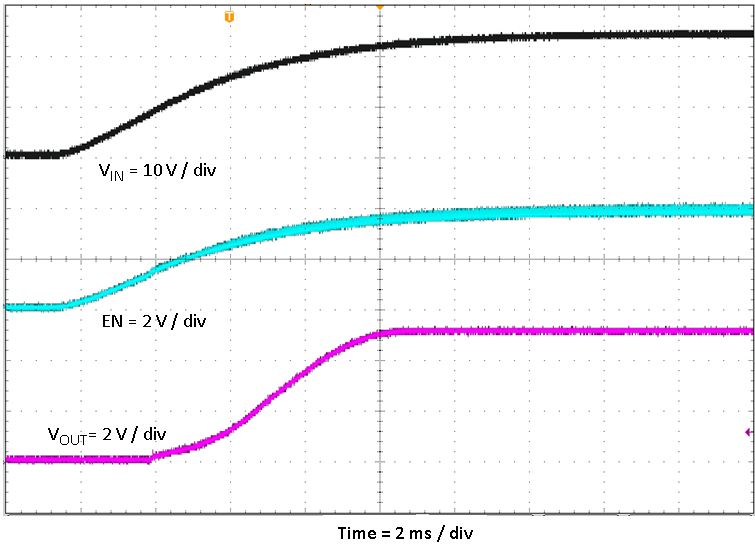SLVUAP8A April 2016 – October 2021 TPS54202H
2.8 Powering Up
Figure 2-11 and Figure 2-12 show the start-up waveforms for the TPS54202HEVM-716. In Figure 2-11, the output voltage ramps up as soon as the input voltage reaches the UVLO threshold as set by the R4 and R5 resistor divider network. In Figure 2-12, the input voltage is initially applied and the output is inhibited by using a 3.3-V logic signal between EN and GND. When the EN voltage reaches the enable-threshold voltage, the start-up sequence begins and the output voltage ramps up to the externally set value of 5 V. The input voltage for these plots is 24 V and the load is 5 Ω.
 Figure 2-11 TPS54202HEVM-716 Startup Relative to VIN
Figure 2-11 TPS54202HEVM-716 Startup Relative to VIN Figure 2-12 TPS54202HEVM-716 Startup Relative to Enable
Figure 2-12 TPS54202HEVM-716 Startup Relative to Enable